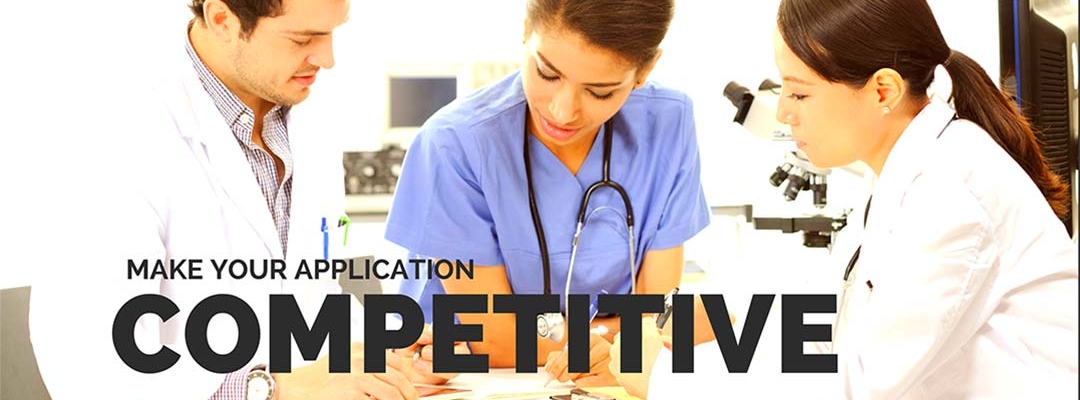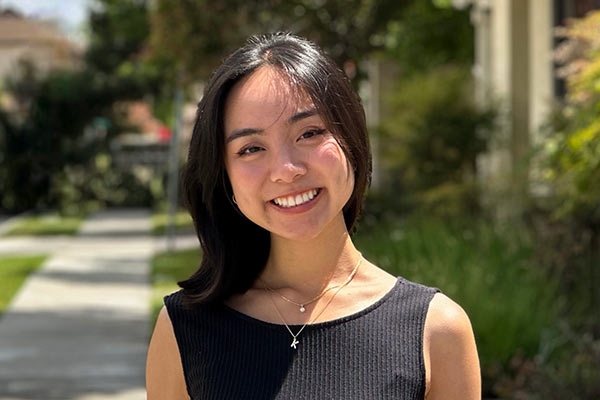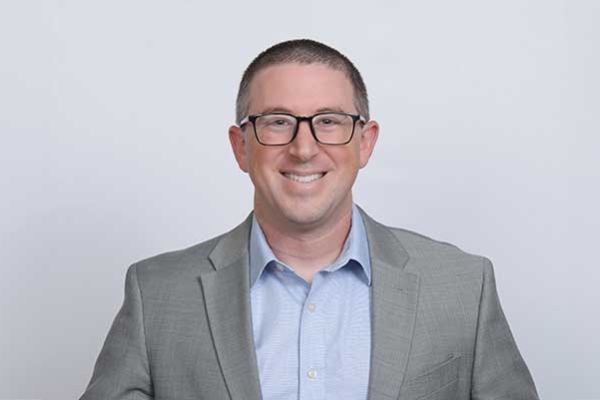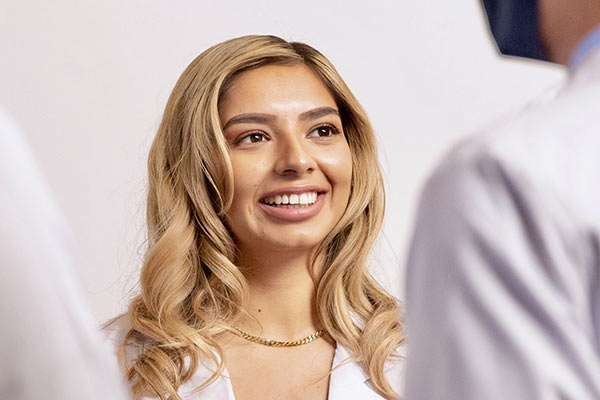According to the National Association of Advisors for the Health Professions, more than 53,000 medical school hopefuls applied for just 21,000 available spots—so only about 40% of applicants were accepted. In dentistry, 185,000 applications were submitted for the available 20,720 seats. The competition is fierce. The same level of competitiveness weaves its way through all types of graduate-level health professions programs—including veterinary, physician assistant and nursing.
To succeed, you need to make your application stand out from the rest. Dr. Emily Singer—a MedSchoolCoach advisor and General Surgery resident at the Ohio State University, as well as a former Post-Baccalaureate Health Professions Program health student—agrees:
"Medical school is such a huge investment of your time, your emotions and finances. I see a lot of applicants who have trouble convincing me on their application that they're fully committed. Getting perspectives from people in the field can really help you understand what your future may look like and show the admissions committee your commitment."
So how do you show your passion to enter the health professions field—let alone ensure that all of your application's moving pieces are signed, sealed and delivered?
We recently introduced three new Health Seminar courses that are available to those currently registered in the program and to anyone who wants to dig deeper into the application process itself. The suite of courses—Health Careers Seminar II UNEX 1075A, 1075B and 1075C—comprises three 5-hour sessions and is available for continuing education units (CEUs), not academic credit.
"Understanding the many parts of the application process is so important to a student's ability to provide a competitive application to his or her target health professional school," says Jo Scullion, M.Ed., Program Director for the Post-Baccalaureate Health Professions Program. "I want students to understand the best practices for creating a strong and competitive application, and by taking the three classes we cover everything an applicant needs to know. There are many, many questions students have about the different aspects of an application, such as whether they are competitive enough to be considered, the timeline to apply, writing the personal statement, and concerns about preparing for the various types of interviews. We spend a lot of time in our classes going over the big picture, as well as taking the time to focus on each student's individual situation."
You can take all three or pick and choose the topics that most interest you. So let's dig into what each session will cover.
Step 1: UNEX 1075A The Application Process
Learn how you can become better prepared to apply to a graduate-level health professions program. After a broad overview of the steps you need to take, you will start examining more specific timelines in relation to your desired profession. Review your competitiveness based on:
- Profession of choice
- Academics
- Experiences and letters of recommendation
- Timeline for applying
- Choosing a school
You'll also be provided with resources to help you identify your target schools.
Finally, get a visual roadmap from starting your application to receiving your acceptance letter. Read the course description.

"I ended up asking five instructors for a letter of recommendation: four for the composite letter and one stand-alone letter. I don't think I would have gotten accepted to a medical school had my relationship with my instructors not been strong."
—Young Kang, UC Davis School of Medicine
Step 2: UNEX 1075B Personal Statements and Financial Aid
Remember Dr. Singer's comment about showing your commitment? In this course, you'll learn how to show your passion on paper.
Learn what schools are looking for in that statement and gain techniques to get their attention by mastering the written parts of your application. Through in-class sessions, you'll identify your motivations and goals so that you can translate that passion to paper.
Oh, and just like applying to your undergrad, you should have more than one school in mind. Yes, your dream may be to attend School XYZ, but it's important to have secondary schools as part of your game plan. This class will show you what to include in those secondary applications and how to manage them.
Dr. Singer is right—attending a graduate-level health professions program is a major financial commitment in and of itself. In this course, you'll also review important financial considerations in pursuing this path and gain clarity through examples and resources provided by the instructor. Or you could hear it straight from guest speaker Abera Metaferia, a financial aid counselor at Stanford School of Medicine. He'll discuss ways to finance your health care education, including information on loans, scholarships and novel financial aid programs. You'll be able to compare and contrast financial aid programs offered at private and public institutions.

"The application process for PA school is highly competitive and very thorough, and I wanted to ensure that I would be a competitive applicant. The program offered the support I needed to set a realistic timeline for completing classes, managing the coursework and navigating the application process. With my program adviser, I got assistance in writing my personal statement, tips in interviewing through a mock interview and general guidance in managing my classes and my applications. The Health Careers seminars provided further information in a classroom setting on the application process and helped to answer questions and ease my anxieties prior to applying to PA programs."
—Melissa Javaheri, Stanford University's Primary Care Associate Program
UNEX 1075C: Interviewing Successfully
Your application is stellar, you've got your finances squared away, what's next? Time to put your best foot forward when you get the call for your interview. Remember, this is not like a job interview; there are elements that are specific to gaining admittance to your ideal school.
In this course, you'll discuss the purposes and various types of professional school interviews, including open, close and multiple mini interview (M.M.I.). Learn how you can prepare for professional school interviews and ways to maximize their effectiveness. You'll also participate in mock interviews and practice M.M.I. stations.
Guest speaker Curtis Tom, BSEE, MSEE, has participated in Stanford's M.M.I. program as a rater during the 2011 and 2012 admissions cycle and has interviewed approximately 300 candidates during that period. He is currently an electrical engineering manager who has worked for and consulted with large companies such as Johnson & Johnson and Boston Scientific.

"The health seminars were really helpful because med school application is such a process, and I had no idea what I was getting into. There are so many details that go into it; it's like a full-time job. Having the administration and advisers to walk you through the process made me feel sure that all the appropriate steps were taken. If I were doing it by myself, I would definitely be worried that there's something I'm missing."
—Katie Fenton, Cooper Medical School of Rowan University
Courses start in September 2017—so reserve your spot today!



